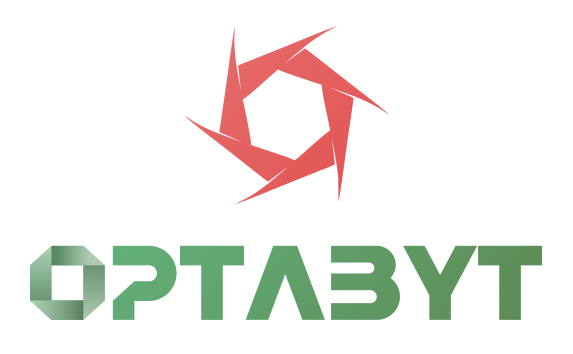
Table of Contents
ToggleCustom E-Commerce Website Development: A Complete Guide for Businesses
Table of Contents
In today’s digital age, e-commerce has revolutionized the way businesses operate. From small startups to multinational corporations, companies are investing in custom e-commerce website development to create tailored online stores that meet their unique business needs. Unlike ready-made templates, custom development provides flexibility, scalability, and a competitive edge in the market.
In this article, we’ll explore everything you need to know about custom e-commerce website development, its benefits, process, best practices, and how it can transform your business into a strong online brand.
What is Custom E-Commerce Website Development?
Custom e-commerce website development is the process of building an online store from scratch based on specific business requirements, rather than using pre-designed templates. It involves creating unique designs, features, and functionalities that align with a brand’s goals, target audience, and growth strategy.
Unlike platforms like Shopify or WooCommerce that come with pre-defined structures, custom e-commerce development allows for complete personalization — from user interface (UI) to back-end architecture.
Why Businesses Choose Custom E-Commerce Development
- Unique Brand Identity
Your online store becomes a direct reflection of your brand. A custom website ensures your design, layout, and features stand out in the competitive e-commerce industry.
- Scalability
As your business grows, a custom-built platform can scale with you. Unlike template-based platforms that may restrict expansion, custom sites can handle new features, payment gateways, or increased traffic seamlessly.
- Advanced Security
Security is a top concern in e-commerce. With custom development, businesses can implement tailored security protocols, encryption, and compliance with international standards like PCI DSS.
- Improved User Experience (UX)
Custom websites are designed to enhance usability. Features like smooth navigation, personalized product recommendations, and mobile responsiveness keep users engaged.
- Better SEO Performance
With a tailored structure, SEO-friendly URLs, optimized site speed, and structured data, custom e-commerce sites rank higher in search engines compared to generic platforms.
Key Features of a Custom E-Commerce Website
When developing a custom solution, certain features are essential to ensure your website is user-friendly, secure, and competitive.
- Custom Design and Branding – Tailored layouts, colors, and typography.
- Responsive Design – Mobile and tablet compatibility.
- Advanced Search and Filters – Easy product discovery.
- Custom Checkout Process – Streamlined, multi-payment options.
- Inventory Management – Real-time product stock updates.
- Customer Accounts and Profiles – Order history and personalized dashboards.
- Product Recommendations – AI-driven upselling and cross-selling.
- SEO-Optimized Architecture – Structured data, fast loading speed.
- Analytics and Reporting – Sales reports and customer insights.
- Third-Party Integrations – CRM, ERP, shipping, and marketing tools.
The Process of Custom E-Commerce Website Development
Building a custom site involves several phases. Here’s a step-by-step breakdown:
- Discovery & Planning
- Identifying target audience
- Defining business goals
- Selecting technology stack
- UI/UX Design
- Wireframes and prototypes
- Visual design aligned with branding
- Responsive layouts
- Development
- Front-end coding (HTML, CSS, JavaScript)
- Back-end development (PHP, Node.js, Python, etc.)
- Database setup (MySQL, MongoDB)
- Integration
- Payment gateways (PayPal, Stripe, etc.)
- Shipping services (FedEx, DHL)
- CRM and ERP systems
- Testing
- Functional testing
- Security audits
- Performance optimization
- Launch & Deployment
- Server configuration
- Domain setup
- Live deployment
- Maintenance & Support
- Regular updates
- Bug fixes
- Feature upgrades
Technologies Used in Custom E-Commerce Development
Choosing the right technology stack is crucial for performance and scalability. Some popular tools and frameworks include:
- Front-End: React, Angular, Vue.js
- Back-End: Node.js, Django, Ruby on Rails, Laravel
- Databases: MySQL, PostgreSQL, MongoDB
- E-Commerce Frameworks: Magento, WooCommerce (customized), Shopify Plus
- Cloud Hosting: AWS, Google Cloud, Azure
Benefits of Custom E-Commerce Website Development
- Full Ownership – No reliance on third-party restrictions.
- High Performance – Optimized speed and stability.
- Better Conversion Rates – Tailored customer journey boosts sales.
- Enhanced Customer Trust – Secure transactions improve credibility.
- Long-Term ROI – Higher upfront investment, but better returns.
Common Mistakes to Avoid
- Ignoring mobile optimization.
- Choosing the wrong technology stack.
- Overloading features that slow down the site.
- Neglecting SEO structure from the beginning.
- Not testing before launch.
Cost of Custom E-Commerce Website Development
The cost varies depending on complexity, features, and technology. On average:
- Small Businesses: $5,000 – $20,000
- Mid-Level Stores: $20,000 – $60,000
- Enterprise-Level Solutions: $60,000 – $200,000+
Best Practices for Custom E-Commerce Development
- Prioritize user-friendly design.
- Ensure fast load times.
- Use secure payment gateways.
- Implement AI-driven personalization.
- Keep SEO a core focus.
- Continuously update and optimize.
Future Trends in E-Commerce Development
- AI-Powered Personalization – Smarter recommendations.
- Voice Commerce – Shopping via voice assistants.
- AR/VR Shopping – Virtual try-ons for customers.
- Headless Commerce – Decoupled front-end and back-end.
- Blockchain Security – Decentralized payments.
Conclusion
Investing in custom e-commerce website development gives businesses a powerful edge in today’s competitive digital landscape. From enhanced branding to superior scalability, it ensures long-term growth and customer satisfaction. While the upfront investment may be higher compared to template-based solutions, the long-term returns in performance, security, and flexibility make it worthwhile.
If you’re ready to take your online store to the next level, explore custom e-commerce development and build a platform that truly represents your business.
👉 Learn more and explore professional services @ Optabyt
FAQs on Custom E-Commerce Website Development
- What is custom e-commerce website development?
It’s the process of building a unique online store tailored to your brand’s needs. - Why choose custom over ready-made platforms?
Custom sites offer flexibility, scalability, and better branding. - How long does it take to build a custom e-commerce site?
Typically 3 to 6 months, depending on complexity. - What technologies are best for development?
React, Node.js, Laravel, Magento, and AWS are popular choices. - Is custom development more expensive?
Yes, but it offers higher ROI in the long run. - Can I integrate third-party tools?
Yes, CRM, ERP, shipping, and payment gateways can be integrated. - Are custom e-commerce sites SEO-friendly?
Yes, with proper structure and optimization. - Do I get better security with custom sites?
Yes, as developers can add tailored security features. - Can I scale my website later?
Yes, custom sites are built with scalability in mind. - How do I choose the right development company?
Look for experience, portfolio, and strong client reviews.
Lorem ipsum dolor sit amet, consectetur adipiscing elit. Ut elit tellus, luctus nec ullamcorper mattis, pulvinar dapibus leo.
